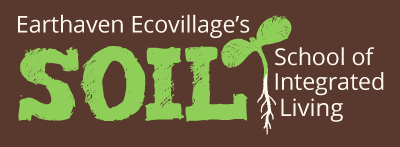Permaculture Design Certification Course
An immersive, hands-on approach to learning permaculture
June 16-29, 2024
Earthaven Ecovillage
Near Asheville, NC
This hands-on permaculture design course (PDC) engages the mind, body, and heart. See permaculture in action at Earthaven Ecovillage, the 29 year-old community-scale permaculture demonstration site. Throughout the program we get our hands dirty and engage all of our senses; it’s about learning by doing. Every one of the instructors incorporates permaculture into their landscapes, businesses, and day-to-day lives. You’ll learn from their successes and failures, as they share candidly about diverse experiences applying permaculture principles to real-life situations.
This PDC is focused on community-scale applications of permaculture in real-life situations.
This 14-day Permaculture Design Course is grounded in the integrated life of Earthaven Ecovillage — an ideal experimental classroom in the mountains of Western North Carolina. In addition to the core PDC curricula, this special course will include a unique layer of how to approach bringing permaculture alive in your community. We’ll be engaging with ancient and new practices of cooperation, mutual aid and community-scale work, all through the lens of racial, gender and economic equity.
As a longstanding, off-grid ecovillage on 330 acres of land, Earthaven is a potent learning playground for this focus on permaculture applied at the community level. You’ll get to see permaculture in action through land stewardship and agroecological practices, buildings, energy and water systems, and other shared infrastructure. What’s more, you’ll get a view into Earthaven’s self-governance, participatory economic culture, and conflict transformation practices.
Use the “SOIL” coupon for a 5% discount!
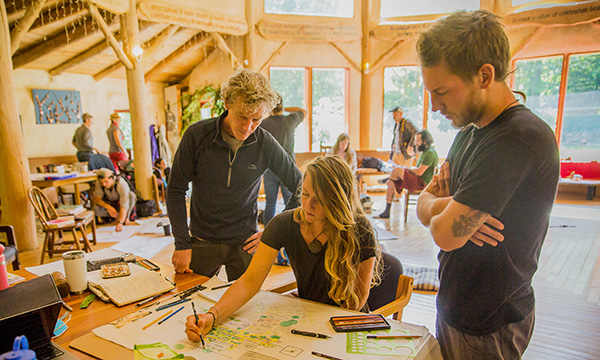
Earn your Permaculture Design Certificate while while nurturing connection
As we learn together, we’ll also have time for connection and reflection. Each day, students and instructors partake in meals together, which gives us a chance to deepen our relationships outside of “class time.” This Permaculture Design Course is as much about embarking on a journey of togetherness as it is about learning “hard skills.” In fact, the majority of our students tell us that the bonds they form and experiences they share are some of the most precious fruits of their PDC experiences.
Learn to integrate a whole-systems approach to your life and landscapes
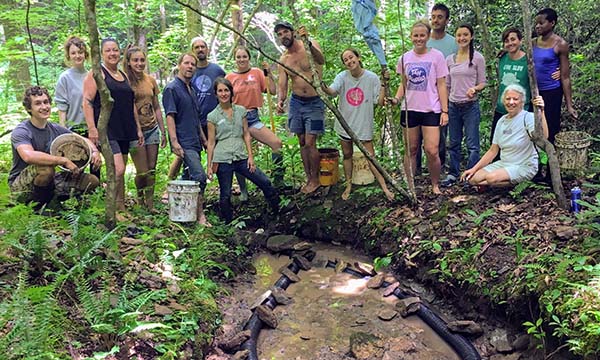
What you’ll learn in this Permaculture Design Course
This class will teach you to become an effective ecological designer in relationship with landscapes and communities. You’ll learn tools and skills to integrate permaculture ethics, principles, and whole-systems thinking into any situation. We follow the Permaculture Institute of North America’s (PINA) 72-hour curriculum, which is based on permaculture founder Bill Mollison’s model. To this foundation, we cover aspects that we find especially compelling and useful, including design considerations for the Southeastern US bioregion and interactive, hands-on learning, all with a focus on community-scale application of permaculture in our day-to-day lives.
Core Curriculum Topics
With the principles and ethics guiding us and weaving everything together, we’ll dive into the ideas, skills, and tools that allow you to apply permaculture into your life. These are the nitty-gritty subjects that form your toolbox as you move into the design process. What’s awesome is that we teach most of them outside at a site where you can see them in action, or in a comfortable outdoor learning space; no stuffy classrooms here!
Core curriculum topics include:
- Principles of ecology and the local ecosystem
- Introduction to agroforestry guilds
- Reading the land and observing patterns
- Plant identification and succession
- Climates, biogeography, microclimates
- Gardening and soil science
- Holistic forestry and orcharding
- Conservation and renewable energy
- Waste, recycling and bioremediation
- Social ecology and invisible structures
- Economics and budgeting
- Home, ecovillage, and neighborhood design
- The built environment
- Water systems, conservation, and catchment
- Earthworks and broad-scale landscape design
- Incorporating animals
- Appropriate technology
- Designing for catastrophe
- Access to land
Use the “SOIL” coupon for a 5% discount!
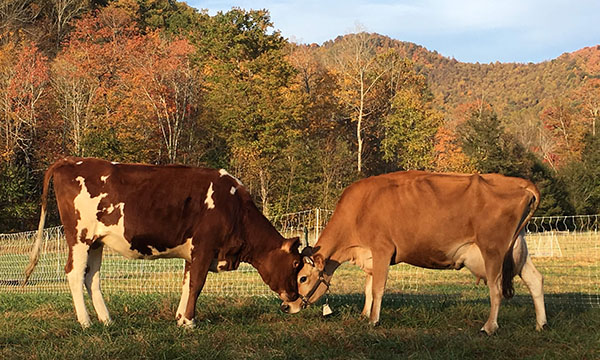
Bonus Material Unique to This Course
This course is a collaboration of Wild Abundance, Earthaven Ecovillage, School of Integrated Living, and Cooperate WNC. Our course goes above and beyond the 72 hours of required material. In fact, this year’s program will be run by a dream-team of organizations and individuals that have been living permaculture for decades.
The course will take place at Earthaven Ecovillage, where many projects, systems, and techniques of permaculture have been applied over the past 29 years in this village setting. You’ll get to see and explore what’s worked, witness unique innovations, and also learn from lived experiences that not all trendy permaculture ideas pan out as smoothly and easily as many claim.
Within the container of Earthaven, your lead teacher, Zev Friedman, will bring his passion for mutual aid, cooperative economics, and the human collaboration that’s required to put permaculture into action. These topics bridge the gap between permaculture ideals and real world application for personal and community transformation. Through his work founding and directing Cooperate WNC, Zev continually explores how mutual aid and the application of ecological design can be effective on a bioregional scale here in Western North Carolina.
This course dives deeply into:
- Cooperatives and mutual aid organizing
- Collective economics
- Edible perennials for the Southeast and beyond
- Decolonization of “sustainability”
- Growing food on various scales
- Racial equity and social justice in this context
- Wild foods and plant identification in the magical Appalachian mountains
- Farming the forest
- Food as medicine
Use the “SOIL” coupon for a 5% discount!

Program Schedule
The PDC is an intensive! Class blocks include bathroom and stretch breaks. This schedule is tentative, with changes on days when there are field trips or special guest lectures. However, each day will be very full throughout the course.
Sunday, June 16
1:00 Arrive. Check in to accommodations and course
2:30 Welcome circle & orientation
4:00 Tour of Earthaven
6:30 Dinner
7:45-9:30 Opening Circle
Daily flow for full program days
7:30 Breakfast
8:30 Morning circle
9:00 Morning sessions
12:30 Lunch and rest
2:00 Afternoon Sessions
5:30 Rest and integration time
6:30 Dinner
7:45-9:00 Evening activities
Friday, June 29
7:30 Breakfast
8:30 Morning circle
9:00 Morning session
12:30 Lunch
1:30 Closing circle
4:00 Program close
Who is this course for?
This intensive course is appropriate for everyone interested in applying Earth-inspired philosophies to their lives and communities, and also for those pursuing a career in permaculture design. All students will cultivate a deep engagement with the ecological and human systems of which they are an integral part.
Our students have come from many walks of life, including gardeners, builders, teachers, landscape designers and architects, nurses, coaches, college students, engineers, parents, writers, herbalists, lawyers, and more.
Permaculture principles can be applied to diverse places and situations. Indeed, the special focus of this PDC is bringing a permaculture approach into our functional lives and communities. This course is accessible and relevant to everyone who wants to live their life more in tune with living patterns and cycles. And it’s especially relevant for those who want to be agents of positive change and healing in this beautiful, vulnerable world.
Permaculture Design Certification
Once you’ve completed the course and submitted and presented your final design, you will earn your Permaculture Design Certificate. This recognizes all the work that you’ve put in and all the skills that you’ve learned and demonstrated throughout the course. It’s a jumping-off point to your unique integration of permaculture into your life, whether you plan to design for a living, want to work on your own land, or hope to engage these concepts on a community scale. If you do plan to make a career out of permaculture, we advise that you first invest a significant amount of time applying your skills with real-world landscapes before you advertise your design skills. The permaculture design certificate marks the beginning of the road for a professional permaculture designer.
Registration Process
Because this course is a collaboration, participants will register for the course on the Wild Abundance website. Use the “SOIL” coupon to save 5%!
Once accepted into the course, participants will register and pay for the required meal plan and optional accommodations on the SOIL website. The link to register for the meal plan and accommodations will be included in the welcome email from Wild Abundance.
Note: Program participants may not bring pets to Earthaven. If you have a service dog, please contact us to discuss options before registering.
Cost
Tuition
Regular Tuition Sliding Scale: $1,650 – $3,300
Please pay what you can afford. The median price is suggested to help cover the full cost of hosting this class. Please select the low end of the sliding scale if you are low income. If your household income is over $115,000/year, please select the maximum fee. Please place yourself in this range where you deem appropriate, based on your income.
Tip: Use the coupon code “SOIL” for a 5% discount on tuition!
Tuition includes free camping.
Meal Plan (Required)
Cost: $620
As a PDC village, students and instructors will partake in all meals together. These shared meals are often a time to deepen in relationships and learning outside of “class time.”
Delicious, omnivorous meals are prepared by talented culinary artists from the Earthaven community. Vegetarian, vegan, and gluten-free options are available.
As much food as possible is sourced from Earthaven and its surrounding farms and gardens, with some ingredients sourced from local grocery stores. Our meals are created with seasonal, local, fresh, wildcrafted, humanely-raised, and organic ingredients.
Purchase of the PDC meal plan will be through this SOIL website. Course registration is not confirmed until a student has paid 1) Wild Abundance for PDC Tuition, AND 2) School of Integrated Living for a meal plan. Registered students will receive a link to purchase the meal plan in their welcome email.
Accommodations (Optional)
Although lodging at Earthaven is optional, we refer to this PDC as a residential course because students who stay in the ecovillage have consistently experienced more ease, depth of connection, and profound learning than those who choose to commute. Although it’s possible for commuters to still experience a rich experience in the course, the additional travel time makes for longer days and less time with fellow students and/or time on the land and enjoying the natural world that the course is grounded in.
Accommodation Options
Camping is included in the PDC tuition. Indoor accomodations are sold out.
Shared Campground Cabin Lodging
Cost per person: 13 nights $235
Sleeping bags and pads are available for rental for $15/set. Cleaning supplies to clean mats are available before and/or after use. SOIL launders the sleeping bags once a year. FYI: There are a couple of loaner tents that live in the campground, no guarantee on condition. First come, first served on tents.
Instructors
Zev (he/him) grew up in a patch of kudzu in Sylva, NC, embraced by the wild Appalachian landscape and layers of ecological and human communities here. He specializes in hands-on, in-depth education in permaculture and earthskills and has been doing residential and community-based professional design and installation throughout Western North Carolina since 2007. Almost a decade of study with world-renowned teacher Martín Prechtel helped feed his passion for regrowing our own diverse Earth-based lifeways through youth initiation and ritual. Zev currently serves as Creative Director for Cooperate WNC, which harnesses the power of cooperation at a regional scale to meet human needs and address our most pressing ecological and social challenges. He can also be found teaching many of these same concepts as a faculty member of the School of Integrated Living.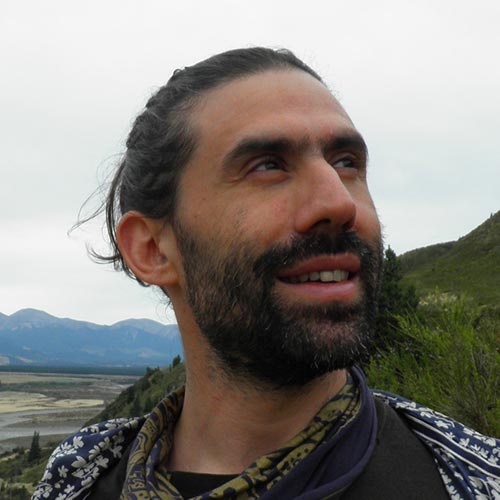
Zev Friedman
Chloe (she/her) is passionate about nurturing a more beautiful, reciprocal, respectful relationship between humans and the rest of the living world. Chloe has been passionate about food and farming for over 20 years, with a special love for the interactions between human communities and their food systems. She studied Agroecology and Sustainable Food Systems at UC Santa Cruz, has learned and practiced gardening in five countries, and continues to feel delighted every time she serves a homegrown meal to friends and family. Along with working at Wild Abundance, Chloe gives her life energy to growing food, parenting, community care, lifelong learning, and maintaining meaningful relationships.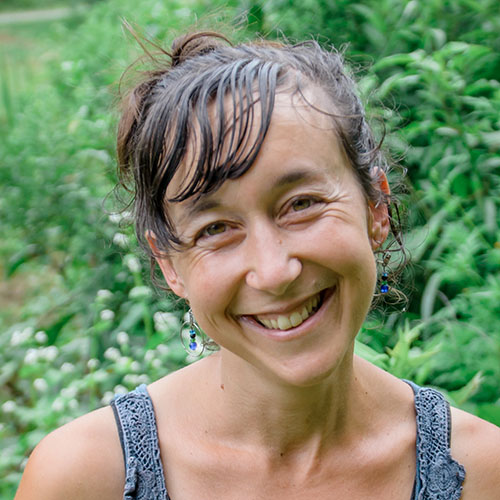
Chloe Lieberman
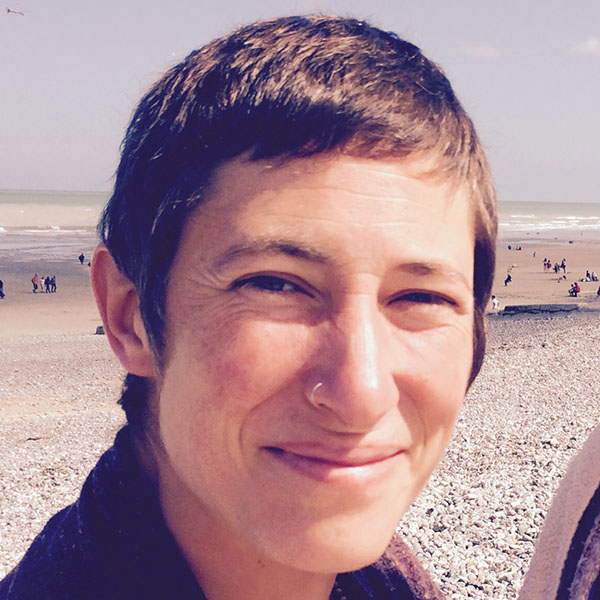
Becky Boisvert
An inveterate adventurer, Becky (she/her) has grown to see life itself as the adventure. That life is made richer in community at Earthaven where Becky, her daughter Willow, and her co-parent Sanne moved in 2018. She loves bringing lofty, creative visions to life. In her first career as an educator, she taught at an arts-integrated charter school, mentored gap-year students in India and Guatemala, and created a holistic middle school. Since then, she has produced two documentary films, coached individuals and couples toward greater wholeness, and begun holding mediations.
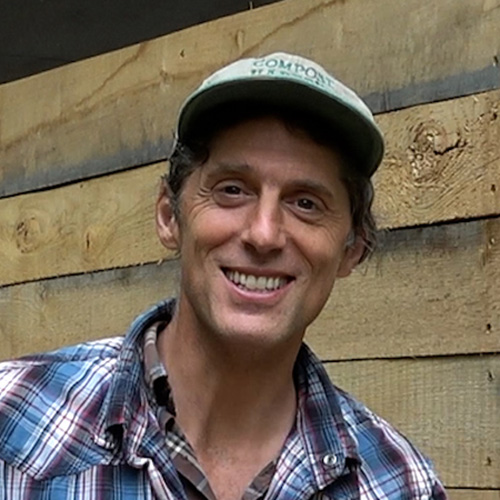
Brandon Greenstein
Brandon (he/him) works with chainsaws, hand tools, heavy equipment, construction projects, water systems, and most everything having to do with the practicalities of ecological design. Meanwhile he also is pursuing trauma and body based therapy to support his work with people, community and earth. Brandon lives at Earthaven in an off-grid duplex, practicing community, partnering, parenting and philosophizing about existence and how to optimize it. He also is the Online Growers School Consulting Director and Sustainability Coach.
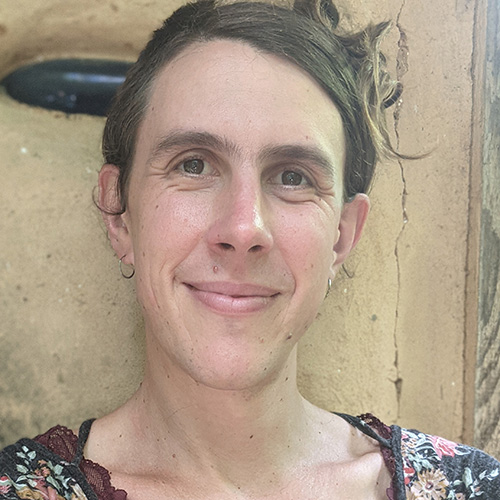
Chloe Vieira
Chloe Vieira is a proud trans woman, a wife, a parent of two incredible children, and a community member, hearth tender, farmer and ritualist at Earthaven Ecovillage. She is also a musician, a storyteller, an educator, a builder, an integrative ecosocial designer, and a holistic life coach specializing in gender exploration and transformation as a part of the journey of rewilding and remembering our interconnectedness with the more than human world.
Since his arrival to EH in 1997, Chris has cleared his own farm field, designed and built passive solar homes using the wood from the trees he has killed (including his own Microhut), held leadership positions in the community, raised turkeys, grown vegetables, co-founded the Forestry Cooperative, designed and installed multiple off-grid energy systems, and a few other things. His newest excitement is dabbling in small-scale biochar production and wood gasification at Gateway Farm.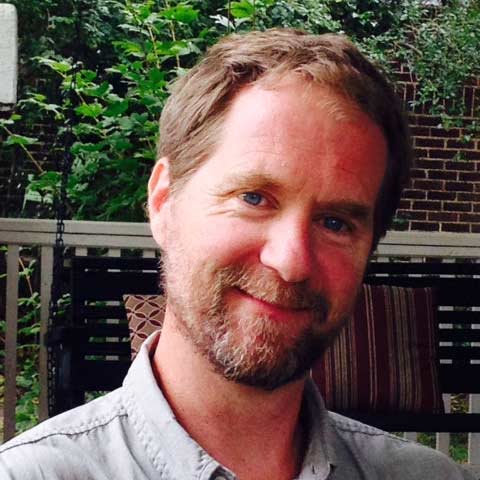
Chris Farmer
Delia (she/her) was born and raised in El Salvador and has always been passionate about the social justice movement. In 2014 she came to North Carolina and started working supporting Hispanic communities in the Henderson and Buncombe area. In 2020, she started ABUNDANCIA, a culturally appropriate food distribution and TIERRA FERTIL COOP, an Hispanic-owned farm cooperative. In 2023, she also worked developing ESCUELA CAMPESINA, a collaborative initiative oriented to reconnecting the Hispanic community with farming, food, and health.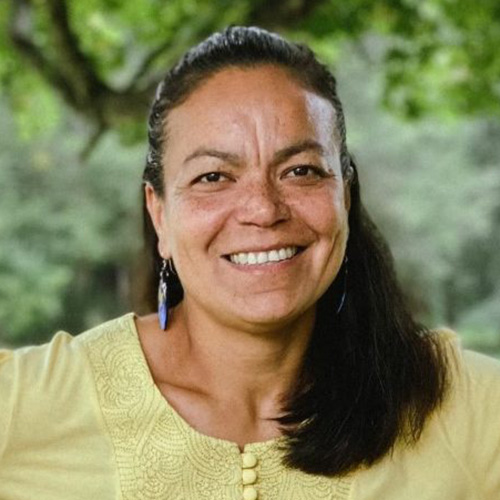
Delia Jovel
Elizabeth has been getting her hands dirty in Western North Carolina since 2004. After graduating from Warren Wilson College in 2006 with a made-up degree in “Social and Activist Theater,” she began pursuing a life more deeply connected to food and other basic human needs. She began a love affair with cows in 2010 while work-exchanging on a neighborhood farm at Earthaven. Since 2013 she has been running a small subsistence farm operation in the community, where, along with the support of many others, she tends to a variety of animals, along with the plants and land that feed them.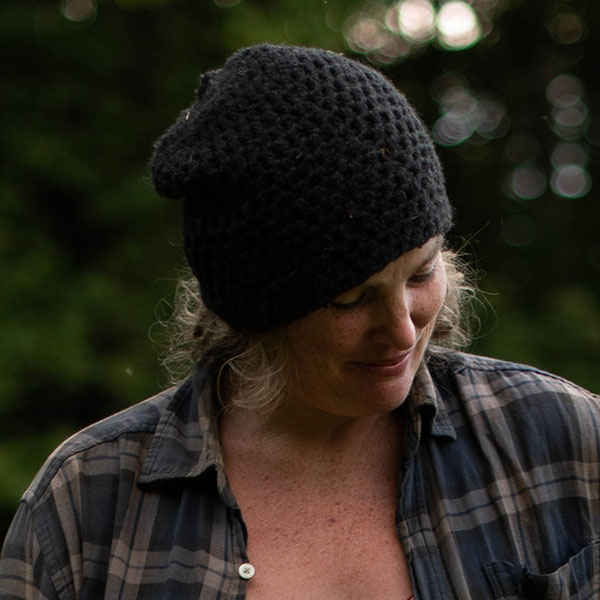
Elizabeth Díaz
Germaine (she/they) is the co-founder of Fresh Future Farm Inc., which operates a nonprofit farm and grocery store that grows the quality of life their neighbors deserve in North Charleston, SC. Germaine is a nationally-recognized, visionary leader in the urban agriculture space and passionate advocate for food justice. Born in Hartsville, SC and raised in Cleveland, OH, Germaine returned to South Carolina to earn degrees from Johnson & Wales University and pursue liberation for her family through food. Germaine and the FFF team have collaborated with Seedlight Pictures on a 1,000+ hour oral history archive for upcoming social impact website Rooted Stories and 90-minute documentary, Rooted Film, where she serves as principal participant and Co-Producer. As Community Network Manager for Equitable Food Oriented Development (EFOD), they are excited about curating in-person and virtual content aligned with BIPOC community-led food system principles across the United States.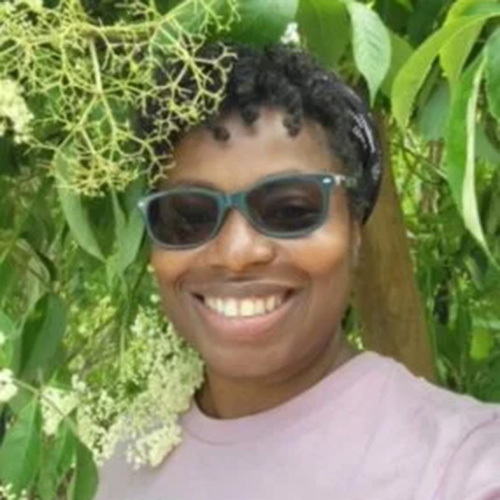
Germaine Jenkins
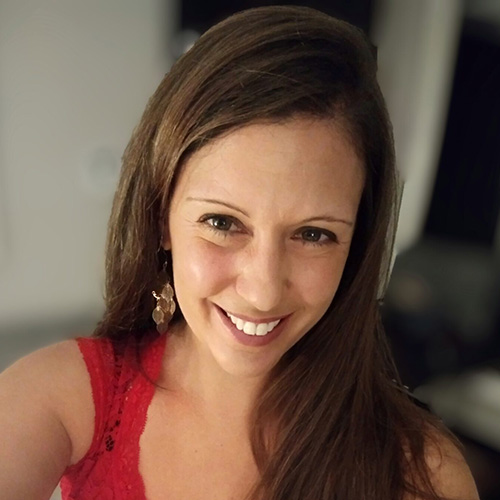
Jennifer Verprauskus
Jennifer (she/her) is a Licensed Landscape Architect, Master Gardener, Master Composter, and a Permaculture Design Certificate Holder. She teaches classes at the North Carolina Arboretum and has taught at conferences across the country.
Jennifer studied landscape architecture at the University of Massachusetts and California Polytechnic State University, and has traveled extensively around the world, exploring place-based landscape design, permaculture techniques, and how people built their life around self-grown organic produce.
She loves to help people re-connect with their food source through effective design. Her mission is to bridge the gap between ornamental and sustainable landscape design.
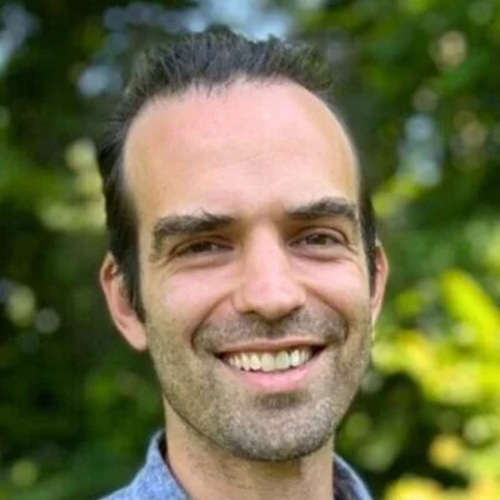
Justin Holt
Justin (he/him) has worked in agroecological design, education, and production for over 12 years, with a particular tap-rooted commitment to tree crops. He is co-founder and worker-owner of the Nutty Buddy Collective and Asheville Nuttery, and co-founder of Kudzu Culture. He also teaches foraging and works as a freelance permaculture designer and consultant.
Luke Cannon is a long time pursuer and teacher of our astounding natural world. His passions to study the ecological intricacies of our living Earth have led him throughout the Americas and across the globe. An avid naturalist he blends biological studies with ethnobotany, ecology, animism, permaculture, survival skills and experiential education. He offers regular public woods walks and classes to share his knowledge of the local plants, birds, and mushrooms and his enthusiasm for building closer relationships with the wilds around us.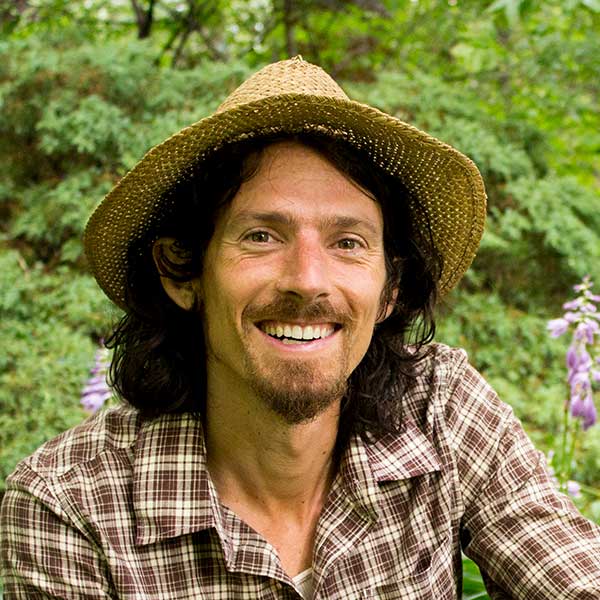
Luke Cannon
Monique is a Naturopathic Physician, founder of Elements Naturopathic Medicine, regenerative biodynamic gardener, homesteader, mother and dedicated community member who has lived at Earthaven Ecovillage since 2016. Her passion for food as medicine fuels her efforts to sustainably grow and raise much of her family’s food including a diversity of vegetables, fruits, berries, laying hens, broiler chickens, turkeys, and even rainbow trout!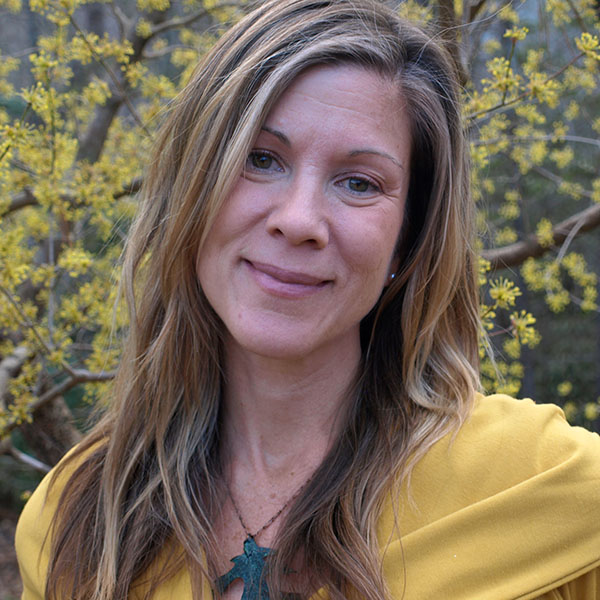
Dr. Monique Mazza, ND
Natalie (she/her) is the visionary behind Wild Abundance, as well as the founder, director, and an instructor. Natalie is passionate about teaching and sharing skills to help all kinds of people live in an empowered and earth-centered way. In 2008 Natalie founded the Firefly Gathering, an earthskills gathering focused on bringing people together to teach and learn. Under Natalie’s management, Firefly became the most well-attended event of its kind in the country, and the only one that was led by a woman. Natalie felt a strong desire to see the impact of sharing these skills with people throughout the year, not just at a once-a-year event, so in 2010 she founded Wild Abundance. Natalie and her daughter live at the Wild Abundance homestead campus in the Southern Appalachians. She balances her time between managing the logistics of the school, teaching, tending the garden, building, playing with her daughter, visiting wild places, connecting with her community, and basking in the beauty of nature. 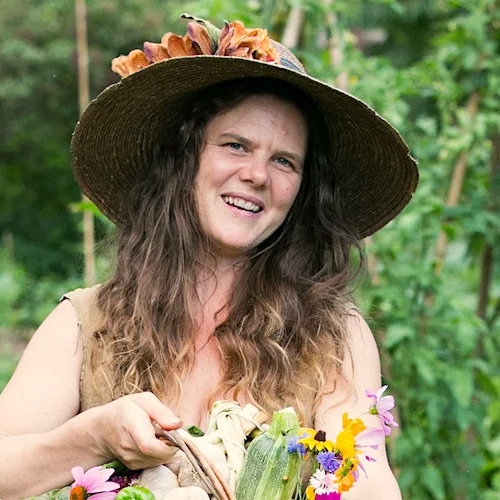
Natalie Bogwalker
Sam (he/him) is a therapist, poet, and small-time farmer who lives, works, and is regularly brought to his knees in Earthaven Ecovillage in the mountains of Western North Carolina.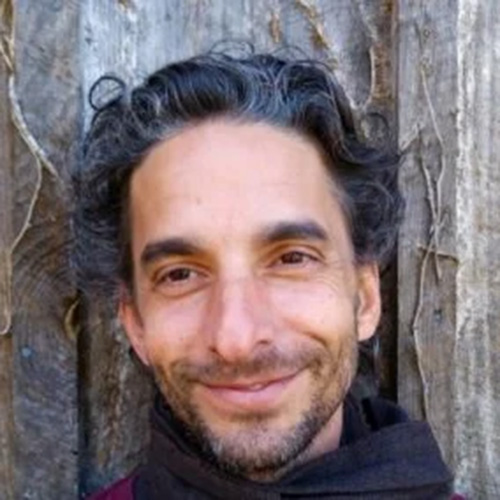
Sam D
Shawn has nourished his interest in agriculture through his work as a farmer, nurseryman, extension agent, arborist, landscaper, manager of Clemson University’s Student Organic Farm, and manager of Wild Hope Farm. From his earliest experiments with no-till farming in the Santa Cruz Mountains of California to his highly functional bio-integrated designs in the Southeast, Shawn has learned how to cultivate food in a variety of climates and landscapes over 25 years of working with the land. A snapshot of his knowledge is available in his book The Bio-Integrated Farm.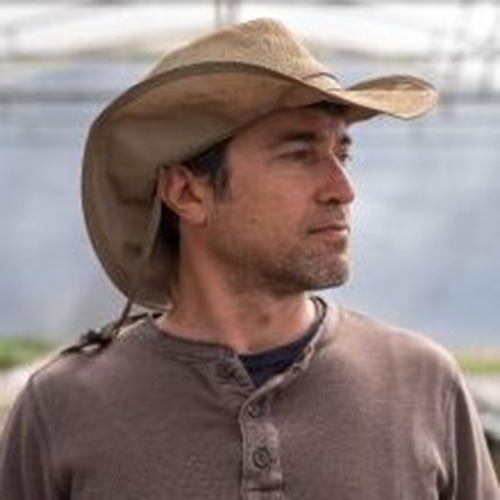
Shawn Jadrnicek
